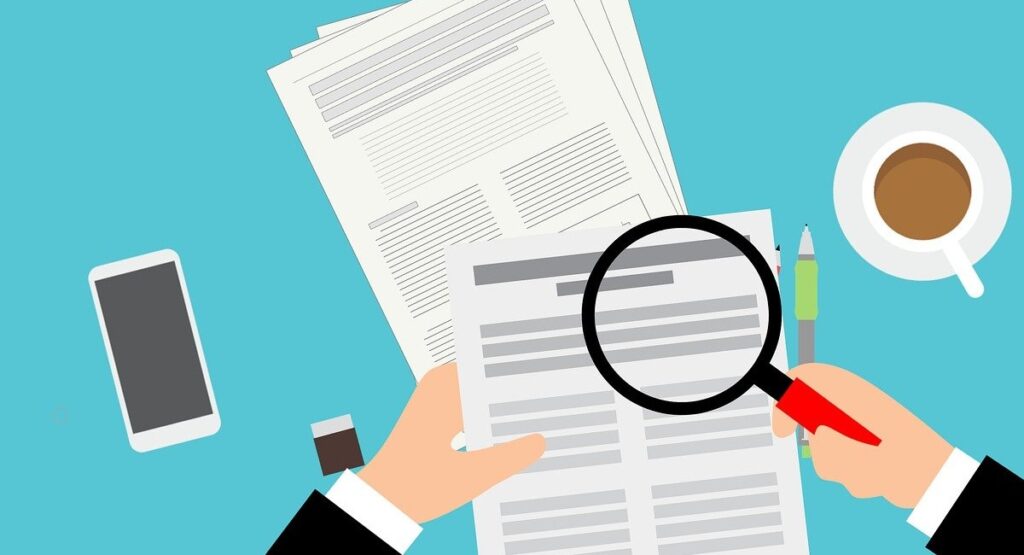Background checks have long been a vital part of the hiring process, giving employers valuable insights into a candidate’s criminal, financial, commercial, and employment history. Traditionally dependent on manual, time-consuming methods, background screening was often slow and fragmented. However, over time it has evolved into a more streamlined, tech-enabled function helping organizations verify credentials, prevent fraud, and ensure candidates are truly qualified for the role.
This transformation has become even more critical in the era of remote and hybrid work. With minimal face-to-face interactions and distributed workforce, companies are under increasing pressure to make hiring decisions faster, smarter and secure. As a result, demand for efficient and reliable background checks is on the rise. The global employee background screening market is now projected to grow at a CAGR of 9.9% from 2023 to 2030, fueled by stricter compliance standards and a growing emphasis on hiring transparency.
In this context, let’s explore how background checks have evolved over the years—and how emerging technologies like AI and automation are redefining the future of employee screening.
How background verification is done
Although background screening has evolved, its foundation is still rooted in verifying a candidate’s essential credentials. Organizations typically follow a standard checklist to ensure a comprehensive and compliant evaluation.
- Identity Verification: Confirms the candidate’s identity using official government-issued documents.
- Education Verification: Validates academic qualifications by cross-checking with the issuing university or educational board.
- Employment Verification: Involves contacting previous employers—typically their HR departments—to confirm job roles, responsibilities, and tenure.
- Criminal Record Check: Helps ensure that the candidate has no prior criminal history that may pose a risk to the organization.
- Reference Check: May involve speaking with former supervisors or colleagues to assess the candidate’s performance, behavior, and professionalism.
- Address Verification: Verifies the accuracy of the candidate’s current and past residential addresses.
Beyond the basics: New additions in background checks
Due to changing industry demands and post-pandemic workforce trends, background checks are now broader. Employers are adding more checks to gain a comprehensive view of candidates.
Drug testing: Conducting drug tests allows employers to assess whether a candidate has a history of substance use, helping them hire dependable and responsible individuals. This practice is especially common among multinational companies in industries like aviation, healthcare, and IT, particularly for roles where safety and regulatory compliance are critical.
Moonlighting check: During the pandemic, moonlighting became a widespread concern in the IT sector. To address this, companies went beyond traditional methods like Provident Fund checks and began using stricter third-party background verification services to identify employees engaged in gig work alongside their full-time roles. For example, many modern technologies can track employee engagement by monitoring factors like meeting attendance, responsiveness, and overall activity. This data can help identify whether an employee might be involved in moonlighting.
Credit check: Not all Indian employers check CIBIL scores during hiring, but some in banking and finance do to assess financial responsibility. They review your credit report—debts, repayment history, defaults, or bankruptcies to gauge your reliability in handling financial matters.
Note: These checks are not universally applied. They’ve emerged in response to specific industry needs and post-pandemic workforce trends.
Then vs. Now: From manual to modern background checks
Background screening in India has evolved significantly. Previously, it relied on manual processes like paperwork and phone calls, leading to errors and delays. Today, AI-powered platforms and automation have made background checks faster and more accurate. However, the adoption of these technologies is still uneven, particularly among smaller firms and traditional sectors.
This gap is reflected in AuthBridge’s Annual Trends Report 2024, which found a 44% surge in employment verification discrepancies across sectors such as telecom, BFSI, pharmaceuticals, FMCG, e-commerce, IT, and the gig economy between FY2021 and FY2024. Despite advanced tools and rising awareness, background checks in India remain inconsistent and incomplete.
How tech is reshaping the future of employee background checks
Technology is revolutionizing background checks, turning them into faster, smarter, and more seamless processes.
- Modern background verification platforms now use API-based systems to instantly cross-check a candidate’s identity, education, address, criminal records, credit history, and previous employment details against official databases. This not only accelerates decision-making but also significantly eases the burden on HR teams.
- AI-powered assistants further enhance the process by quickly analyzing vast amounts of data to flag inconsistencies such as timeline gaps or inflated job titles, which are often overlooked by human reviewers.
- In addition, technologies like digital address verification, facial recognition, and geotagging (to verify candidate’s location) are now commonly used to validate identities and detect tampered or misleading information. These capabilities are especially critical in high-trust sectors such as finance and healthcare.
Innovators leading the way
Several companies are already applying these tech innovations at scale. Let’s look at a few leading examples in India.
- OnGrid, a digital trust platform headquartered in Gurugram, uses advanced technology to streamline and simplify the process of building trust and ensuring accountability. OnGrid’s platform, available via web and APIs, enables organizations to digitally verify the credentials of employees and contractors. This helps reduce risk and maintain compliance standards.
- Traqcheck, an enterprise software startup, focuses on delivering background verification solutions and serves a client base of over 200 major corporations. Utilizing AI and machine learning (ML), the company offers swift and thorough background checks, enabling businesses to make smarter, data-driven hiring decisions.
- AuthBridge, a leading technology company, has recently introduced India’s most extensive AI-driven identity verification platform suite. Leveraging advanced technologies such as machine learning, large language models (LLMs), natural language processing (NLP), and facial recognition, the AuthBridge AI Platform delivers up to 95% verification accuracy. It significantly cuts down turnaround time by nearly 82% and ensures 24/7 availability for seamless verification processes.
Conclusion
The use of technology in employee screening is set to expand even further, especially in the post-pandemic world. In the past, companies often hired candidates from the same city or region, but today’s increasingly remote and distributed workforce means that employees can come from virtually anywhere. This makes stringent background checks more critical than ever, as a single wrong hire can lead to significant financial and reputational costs for a business.
However, while enhancing screening processes, organizations must also stay mindful of data privacy. Employers should ensure that all background checks comply with relevant privacy laws and regulations. Ultimately, the future of hiring lies in leveraging advanced technology without compromising the core values of trust, transparency, and compliance.






